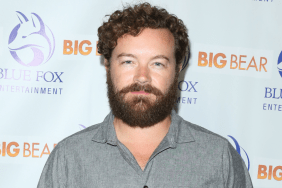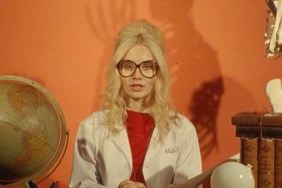
It always seems documentary filmmakers have a hard time walking the line between commentator and story teller. Separating themselves from the subject and allowing the nature of the story they are telling to tell itself rather than manipulating it for their own means. This is a problem I’ve always had with Michael Moore‘s documentaries as he seems only interested in preaching to the choir rather than exploring both sides of the debate. When it comes to Alex Gibney‘s Scientology documentary, Going Clear: Scientology and the Prison of Belief, I genuinely feel he has done his absolute best to stand back and observe rather than inject himself or his opinions. He details an organization that, rather than respond to accusations, chooses to attack when confronted, and this has been going on even before the film’s premiere at the Sundance Film Festival in early 2015 and continues to this very day.
I find it’s impossible to review this movie without bringing this up as The Hollywood Reporter sought to question the Church of Scientology regarding some of the claims in the documentary which includes interviews with former members such as Paul Haggis (Crash), former senior executive of the Church of Scientology Marty Rathbun, former Scientologist Mike Rinder, actor and former Scientologist Jason Beghe and author Lawrence Wright whose book “Going Clear: Scientology, Hollywood, and the Prison of Belief” served as the inspiration and framework for Gibney’s documentary. The result of the questions Emmet McDermott of THR sent to the Church was a five-page letter that didn’t seek to answer questions, but instead sought to discredit those involved in the documentary. A visit to the Church’s online “voice” finds similar instances of attacking rather than answering.
Of course, when McDermott sought to gain a response to questions such as “Was [Scientology founder L. Ron Hubbard] involved in the occult?” “Did Hubbard once kidnapped his own daughter?” “Did Hubbard found Scientology as a way to bolster his declining book sales?” you can hardly expect the answer to be anything other than “No”. That’s just bad journalism. However, the Church’s absence from Gibney’s documentary remains glaring.
One would think David Miscavige, the leader of the Church of Scientology, would want to serve as the face of the organization and answer some of the allegations made by the former members. Allegations that say people were made to reside in a facility known as “The Hole” where they would be forced to clean bathroom floors with their tongue and were encouraged to actually “fight” to stay in such isolation. Of course, famed Scientologists Tom Cruise and John Travolta are a big part of the story. Stories of how the Church sought to break up Cruise’s marriage with Nicole Kidman and make sure he retained custody of their two adopted children. Stories of how the “auditing” sessions with Travolta and Cruise have been recorded and meticulously notated to the point the dirt they have on these two high profile celebrities would be damning should they ever decide to leave or speak out against the Church. “Church”, I use that word with a measure of pause every time I type it as their religious standing in America is also questioned and for, what seems, very good reason.
From a personal standpoint, I don’t care what religion people choose to associate themselves with. Religion can offer a good set of morals, centering people, allowing them to find and better themselves and to hear Haggis tell his story, this is something Scientology afforded both he and his wife at a time in their lives when they most needed it. However, it’s once you get higher up in standing at the Church that more truths are revealed, stories we’ve all heard, none more memorable than the Scientology episode of “South Park“. Couple that with stories of “The Hole” and the Church’s requirement people “disconnect” from those close to them if they don’t believe in the Church’s teachings and your eyebrows begin to raise. My biggest question watching this was “Why?”
Scientology beliefs clearly help some people find themselves and better themselves, so why all the aggressive tactics? Why would someone suggest someone “disconnect” with their own mother? If the Church says this isn’t true than let these people speak freely, though there seems to be a gag order on members of the Church. Again, why? Why are accusations met with aggression? Why won’t Tom Cruise, John Travolta or David Miscavige go on record for a documentary of this sort? One made by an Oscar-winning documentary filmmaker. It just doesn’t make sense. The pieces don’t fit.
You can look closely at any religion and walk away believing they were conjured up by crazy people and those that follow them are equally crazy. Or you can look at the good they bring to people’s lives and respect people’s beliefs as they aren’t hurting you. However, it’s when people do begin to hurt, when beliefs are thrust upon others, that we have a problem. I would never presume to know everything that goes on inside the Church of Scientology, but at the same time it would appear the Church of Scientology doesn’t want us to know what goes on inside its walls. For an organization deemed an official religion in the United States of America that seems odd. The biggest question then becomes, What is there to hide?
Gibney’s documentary takes a frank look at Scientology and does so through the words of those that once belonged to the Church. This does, obviously, mean we are getting the story from people that are likely disgruntled, but when it’s the only story being told, even when we seek to hear both sides of the story, it begins to become the only story you can believe.









